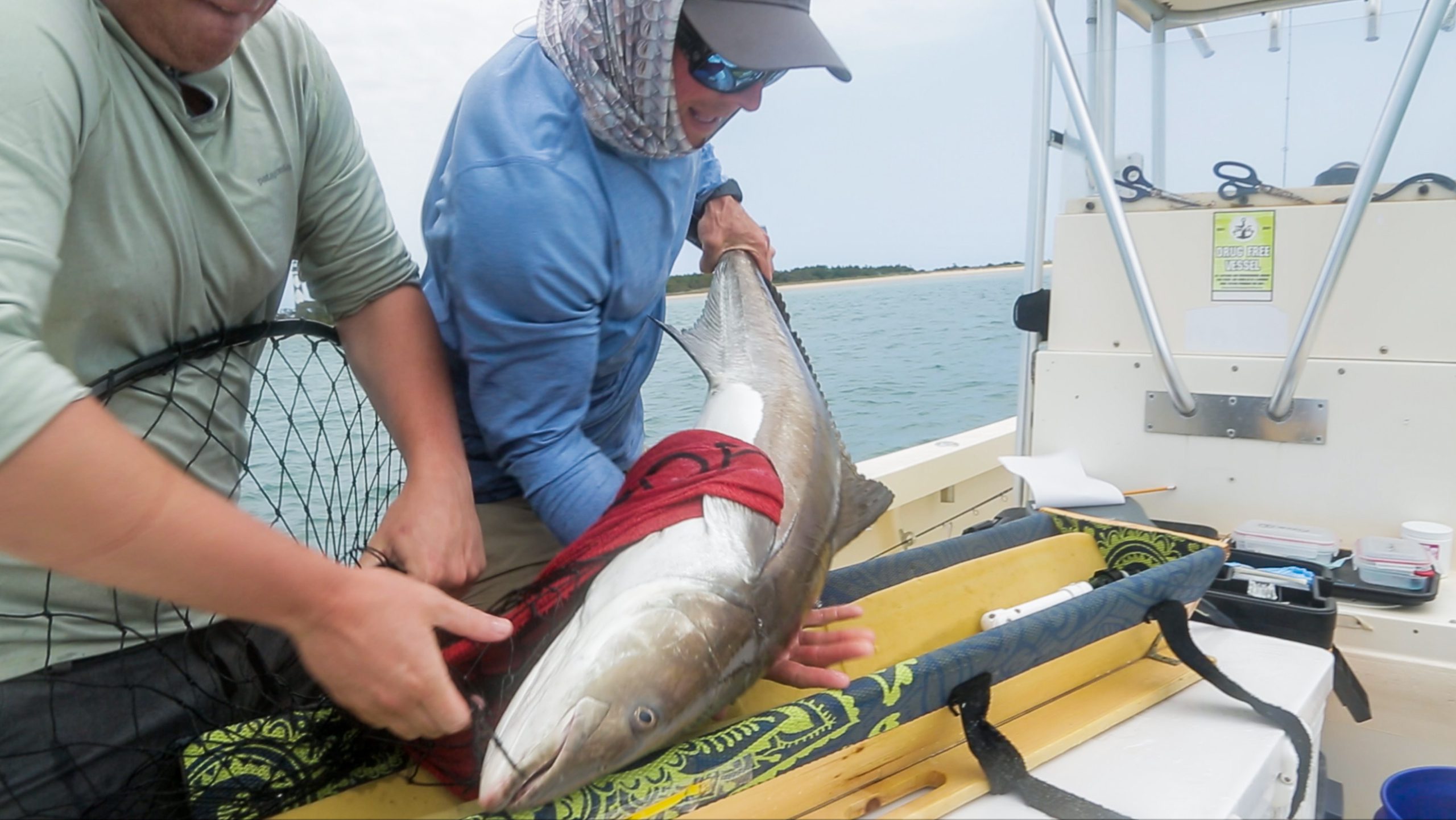Researcher Spotlight – Riley Gallagher

Spring 2018 Global Change Fellow
M.S. Student, Department of Applied Ecology
Advisor: Dr. Jeff Buckel
Every year the Southeast Climate Adaptation Science Center funds a multi-disciplinary cohort of Global Change Fellows representing colleges across NC State University. Here are some highlights about Spring 2018 Fellow, Riley Gallagher, and the applied research he’s conducting.
About You
What do you study?
I study the stock structure and movement of cobia (Rachycentron canadum), a large migratory marine fish along coastal North Carolina and Virginia.
What (or who) influenced you to go into this field of study?
John McMillan, steelhead conservationist, avid angler, and founder of the Wild Steelhead Initiative sub-section of the Trout Unlimited non-profit organization.
What do you think is the most pressing issue related to global change?
The lack of political assertion to the severity of future climate forecasts.
What is your dream job?
I hope to advocate fisheries conservation for a non-governmental fisheries organization.
About Your Research
What is the most important thing that you’ve learned?
Organization and communication are critical to a successful research project.
Who will benefit from your research?
There are many stakeholders that will benefit from my research, including state and federal policy makers, marine conservation organizations, and recreational anglers.
How can your research be used to inform management decisions?
Cobia have become an increasingly important recreational fishery in the southeastern U.S. and mid-Atlantic. My findings on cobia stock structure, mixing zones, and survival will be important for future cobia stock assessments and management. My project will enhance the recreational fishing experience by providing data to increase the likelihood of a sustainable fishery. The goal of my work is to improve the stock assessment and management of cobia and to ultimately lead to a sustainable fishery for this recreationally important fish.
How would you describe your research to a 3rd grader?
I fish to better understand cobia so that others will be able to fish for them in the future.
About Your Global Change Fellow Experience
How do you expect the SE CASC Global Change Fellows Program to impact you and your work?
Science communication is critically important for scientists across all disciplines. My overarching goal as a scientist is to inform a broad fisheries audience about the need to conserve valuable fisheries resources. The skills that I have gained through participation in the SE CASC have and will improve my relationship with marine fisheries stakeholders. Through the SE CASC, I have learned to maintain neutrality as a facilitator and to inspire conservation-based solutions among stakeholders.
- Categories: